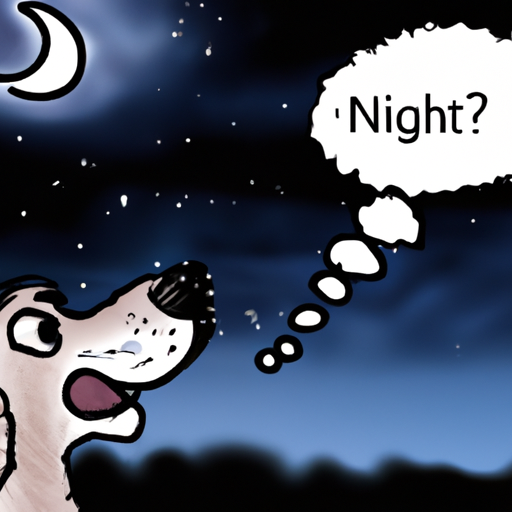Introduction
You’re comfortably settled in bed, the house is quiet, and then you hear it. That familiar rhythmic sound of your dog panting. It may seem peculiar to you, as a dedicated caregiver, to see your furry friend panting without any apparent reason. But, is it normal? Let’s dive into this topic to help you understand why your dog might be panting at night.
Understanding Panting in Dogs
Panting is a common behavior in dogs, but it’s crucial for you to know when it’s normal and when it’s not. Here, let’s explore the reasons dogs pant:
-
Cooling down: Dogs pant to cool down their bodies. Unlike humans, dogs can’t sweat through their skin. They only have sweat glands in their paw pads, which are not enough to cool their large bodies down.
-
Excitement or stress: Dogs often pant when they are excited or stressed. This could be due to a new environment, loud noises, or even your return home after a long day.
-
Pain or discomfort: Dogs may pant when they are in pain or discomfort. This could be due to an injury, an underlying health issue, or even a bloated stomach.
Why Dogs Pant at Night
Sometimes, dogs pant more at night than during the day. Here are potential reasons:
-
Overheating: Your dog might be too hot. Make sure they have a comfortable place to sleep that isn’t too warm.
-
Anxiety or stress: Dogs can experience nighttime anxiety, which may cause them to pant.
-
Health issues: Certain health issues, such as heart problems or respiratory disorders, can cause excessive panting.
What to Do If Your Dog Pants at Night
If your dog’s nighttime panting is worrying you, here are some steps you could take:
-
Monitor the situation: Observe your dog’s behavior. Is the panting occasional or constant? Does it happen every night?
-
Check their environment: Ensure they’re comfortable and not too hot.
-
Consult a vet: If the panting continues or if you notice additional symptoms, it may be time to consult a veterinarian.
Potential Health Issues and Their Symptoms
| Health Issue | Symptoms |
|---|---|
| Heart problems | Fatigue, coughing, loss of appetite |
| Respiratory disorders | Wheezing, difficulty breathing |
| Pain or discomfort | Limping, loss of appetite |
Frequently Asked Questions
Q: Is it normal for dogs to pant at night?
A: Occasional panting can be normal. However, constant or heavy panting could be a sign of discomfort or a health issue.
Q: Should I be worried if my dog pants at night?
A: Monitor the situation. If the panting is excessive, or if there are other symptoms, consult a vet.
Q: Can I do anything to help my dog stop panting at night?
A: Ensure your dog’s comfort by providing a cool sleeping area and reducing stress. If panting persists, seek veterinary advice.
In conclusion, as a caregiver, understanding your dog’s behavior is crucial for their well-being. While occasional panting can be normal, constant or heavy panting at night can be a cause for concern and may require veterinary attention. Stay vigilant and attuned to your furry friend’s needs. After all, your dog’s health and happiness are what matter most.



